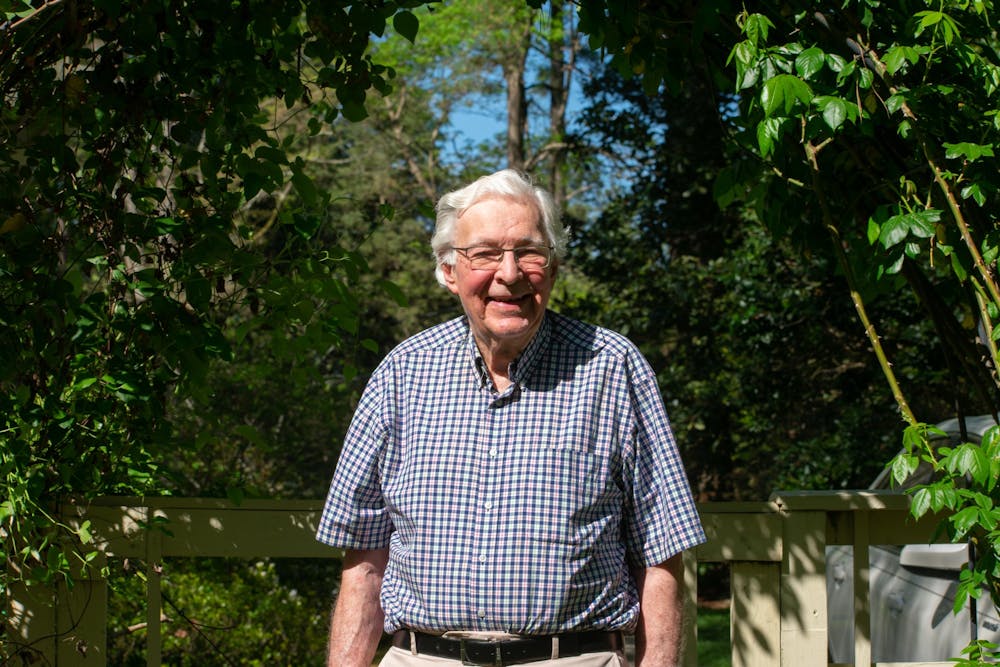CHALT is not the first group in Chapel Hill to focus on advocating for responsible growth. Starting in 1985, the Alliance of Neighborhoods and its PAC created an advocacy network across town to support responsible growth. That group was succeeded by Neighbors for Responsible Growth, which shared a similar vision to the Alliance of Neighbors. Neither of those groups still exist.
Save Orange Schools
Save Orange Schools and its affiliated PAC, the Save Orange Schools PAC, formed in 2020 in response to concerns over deteriorating infrastructure in Chapel Hill-Carrboro City Schools. The group supported prioritizing funding for school maintenance and safety.
In the 2020 BOCC election, the group endorsed Amy Fowler and Jean Hamilton. Henkel, who served as the treasurer for SOS’ PAC in addition to CHALT’s PAC, said SOS and its PAC dissolved after the 2020 election, when Fowler and Hamilton were both elected.
“I organized the PAC for the group and raised some money to endorse a couple of candidates there,” he said. “But there was no intermingling between that PAC and the CHALT PAC. The only connection was me.”
Influence through local elections
These PACs have mainly influenced the community through endorsing and supporting candidates during local elections.
After CHALT’s successful endorsements in 2015, the organization and its PAC went on to successfully endorse four council candidates and a mayoral candidate in 2017, and two council candidates and a mayoral candidate in 2019. In 2020, CHALT endorsed Hamilton, Fowler and Renee Price for the Orange County BOCC, all of whom were elected.
Andrea Benjamin, an associate professor at the University of Oklahoma who previously taught political science at UNC, said endorsements can have a major impact on local elections since there is often less partisanship, less spending and less discussion about candidates compared to larger elections.
Hamilton was endorsed by both CHALT and SOS. She said she welcomes endorsements from groups that align with her views, but doesn’t let them dictate her decision-making. Penny Rich, former chairperson of the BOCC, was not endorsed by CHALT or SOS. She said the groups made claims about her during the 2020 election that weren’t true.
The existence of PACs like CHALT’s and SOS’ is not unique to Chapel Hill. Bob Hall, former executive director of Democracy N.C., said towns and cities all across the state have local PACs that seek to influence local elections.
As an organization, CHALT has also impacted the community by advocating for what it calls responsible growth. Henkel said the organization has a newsletter list of over 1,500 people, which is often used to discuss its thoughts on developments around town. The group has previously opposed projects like the Columbia Street Annex development and the discontinued GoTriangle Light Rail due to concerns over traffic and the environment.
To get the day's news and headlines in your inbox each morning, sign up for our email newsletters.
“The types of development that are proposed and approved, in our opinion, are not always in the best interest of the town,” Henkel said. “We support responsible growth and building things that the town really needs.”
John Rees, the president of the Bicycle Alliance of Chapel Hill and a member of the Chapel Hill Planning Commission, said he thinks CHALT is anti-development. He said he views the Columbia Street Annex as a prime example of smart development.
Julie McClintock, a member of CHALT and a former Chapel Hill Town Council member, said she thinks calling the group anti-development is inaccurate, pointing to Southern Village as being emblematic of the type of development CHALT supports.
Community concerns
Some community members have raised concerns over the operation of these organizations and their affiliated PACs.
Rees said he has concerns about the potential for endorsements from PACs to serve as the main source of information residents have about local elections, since unbiased coverage of candidates can be hard to find.
“These endorsements are potentially filling an information void, but it's filling the void with a polarized perspective,” he said.
Rich and Rees both also raised concerns about the involvement of a CHALT member in The Local Reporter, a local newspaper published by the nonprofit Friends of Local Journalism. Del Snow is president of Friends of Local Journalism and has written articles for The Local Reporter on local developments. On CHALT’s website, Snow is listed as a member.
In an email to The Daily Tar Heel, Snow said she is no longer taking an active role in CHALT, and said The Local Reporter is a wholly separate entity from CHALT.
Rees also said he doesn’t think CHALT is transparent enough about its involvement with other community groups, like Estes Neighbors, a group advocating against the proposed Aura development. He said he thinks CHALT needs to be more explicitly transparent about its scope of support and membership overlap with other local groups.
McClintock, who, in addition to being a member of CHALT, is involved with Estes Neighbors and is president of Friends of Bolin Creek, said CHALT views advising and being supportive of other local groups as part of its mission.
“Absolutely we’re involved with Estes Neighbors and absolutely we’re supportive,” McClintock said. “But it's not like we are the same.”
@kaylaguilliams
@DTHCityState | city@dailytarheel.com



